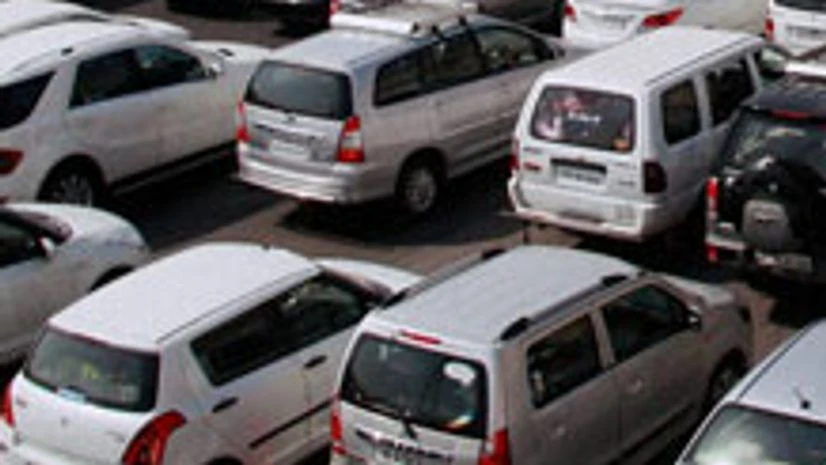Electric and hybrid cars could become more affordable with the cost of batteries poised to plummet.
The Automotive Research Association of India (ARAI) has joined hands with Vikram Sarabhai Space Centre to develop batteries for passenger cars, sourcing technology used to power spacecraft. The Pune-headquartered research institute will design and develop car batteries and offer the technology to automobile companies for mass production.
Local manufacturing will bring down the cost to less than a tenth of imported batteries. China is the world leader in battery production while no such batteries are made in India.
“The ARAI will develop and test batteries for use in electric and hybrid vehicles and then offer to transfer the technology to manufacturers for mass production," said Rashmi Urdhwareshe, director of the ARAI.
The Mahindra Reva e20, the only electric car on sale in the country, costs Rs 7,51,800 (ex-showroom Delhi) without M&M’s car protection plan but with a government incentive priced in. The e20's price is at par with India's largest selling mid-sized sedan Honda City, which is nearly twice its size.
In recent months, state-sponsored incentives in Delhi and Karnataka have pushed up demand for electric cars and hybrids. “We have seen an uptick in demand in Delhi, Bengaluru and Pune. This trend will hopefully continue,” said a Mahindra Reva executive.
The Centre offers incentives of up to Rs 29,000 for electric and hybrid motorcycles and Rs 1.38 lakh for cars. The government has approved an initial outlay of Rs 75 crore for a scheme to promote adoption of electric and hybrid vehicles in the budget for 2015-16.
K Sivan, director of the Vikram Sarabhai Space Centre, said, "The concept for automobile batteries is the same as those used for space vehicles. Now with the ARAI collaboration, it will be tested for use in cars. The third stage will be to pass on the technology to a mass manufacturer, when complementary technology aspects and volumes will determine affordability.”
ARAI will also develop a thermal management system for the battery to make it safe for vehicles and passengers.
“The ARAI will work towards testing of the technology and will come out with a prototype in a year’s time. Thereafter, the industry should come forward to manufacture these batteries for supply to automobile manufacturers,” Urdhwareshe added.
General Motors, Toyota, Honda, Renault, Tata Motors, Ashok Leyland and Nissan have shown interest in launching electric and hybrid cars in India. However, lack of government support and manufacturing costs have kept these companies at bay. The cost of batteries has dropped globally over the last few years as more companies have developed electric cars. According to a report published by the Australian Renewable Energy Agency, the cost of lithium-ion batteries preferred by most car makers will drop by 60 per cent by 2020.
The Automotive Research Association of India (ARAI) has joined hands with Vikram Sarabhai Space Centre to develop batteries for passenger cars, sourcing technology used to power spacecraft. The Pune-headquartered research institute will design and develop car batteries and offer the technology to automobile companies for mass production.
Local manufacturing will bring down the cost to less than a tenth of imported batteries. China is the world leader in battery production while no such batteries are made in India.
“The ARAI will develop and test batteries for use in electric and hybrid vehicles and then offer to transfer the technology to manufacturers for mass production," said Rashmi Urdhwareshe, director of the ARAI.
The Mahindra Reva e20, the only electric car on sale in the country, costs Rs 7,51,800 (ex-showroom Delhi) without M&M’s car protection plan but with a government incentive priced in. The e20's price is at par with India's largest selling mid-sized sedan Honda City, which is nearly twice its size.
In recent months, state-sponsored incentives in Delhi and Karnataka have pushed up demand for electric cars and hybrids. “We have seen an uptick in demand in Delhi, Bengaluru and Pune. This trend will hopefully continue,” said a Mahindra Reva executive.
The Centre offers incentives of up to Rs 29,000 for electric and hybrid motorcycles and Rs 1.38 lakh for cars. The government has approved an initial outlay of Rs 75 crore for a scheme to promote adoption of electric and hybrid vehicles in the budget for 2015-16.
K Sivan, director of the Vikram Sarabhai Space Centre, said, "The concept for automobile batteries is the same as those used for space vehicles. Now with the ARAI collaboration, it will be tested for use in cars. The third stage will be to pass on the technology to a mass manufacturer, when complementary technology aspects and volumes will determine affordability.”
ARAI will also develop a thermal management system for the battery to make it safe for vehicles and passengers.
“The ARAI will work towards testing of the technology and will come out with a prototype in a year’s time. Thereafter, the industry should come forward to manufacture these batteries for supply to automobile manufacturers,” Urdhwareshe added.
General Motors, Toyota, Honda, Renault, Tata Motors, Ashok Leyland and Nissan have shown interest in launching electric and hybrid cars in India. However, lack of government support and manufacturing costs have kept these companies at bay. The cost of batteries has dropped globally over the last few years as more companies have developed electric cars. According to a report published by the Australian Renewable Energy Agency, the cost of lithium-ion batteries preferred by most car makers will drop by 60 per cent by 2020.

)
